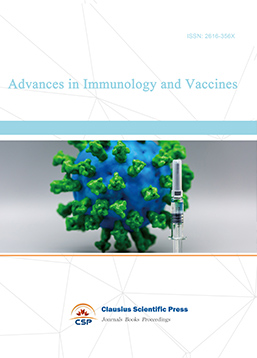A Pilot Study of the Pittsburgh Sleep Quality Index Scale among Chinese University Student Population
DOI: 10.23977/phpm.2023.030106 | Downloads: 41 | Views: 2369
Author(s)
Zeng Yingjie 1, Hou Qunniao 1, Duan Tingting 1
Affiliation(s)
1 Universiti Teknologi Malaysia, Johor Bahru, 81310, Malaysia
Corresponding Author
Zeng YingjieABSTRACT
Sleep quality is essential for physical and mental health, and poor sleep quality is a global public health problem. PSQI is a widely used questionnaire to assess sleep quality. This study focused on the sleep quality of Chinese university students and the reliability and validity of the Pittsburgh Sleep Quality Index (PSQI) scale in this population. The aim is to provide the basis for the effective evaluation and research of sleep quality of Chinese university students.
KEYWORDS
Sleep Quality; Pittsburgh Sleep Quality Index (PSQI) Scale; Chinese University StudentsCITE THIS PAPER
Zeng Yingjie, Hou Qunniao, Duan Tingting, A Pilot Study of the Pittsburgh Sleep Quality Index Scale among Chinese University Student Population. MEDS Public Health and Preventive Medicine (2023) Vol. 3: 36-44. DOI: http://dx.doi.org/10.23977/phpm.2023.030106.
REFERENCES
[1] Malhotra R K, Avidan A Y. (2014). Sleep Stages and Scoring Technique [J]. Atlas of Sleep Medicine (Second Edition), 77-99.
[2] Bliwise D. L. (1993). Sleep in Normal Aging and Dementia [J]. Sleep, 16(1), 40–81.
[3] Consensus Conference Panel, Watson N. F., Badr M. S., Belenky G., Bliwise D. L., Buxton O. M., Buysse D., Dinges D. F., Gangwisch J., Grandner M. A., Kushida C., Malhotra R. K., Martin J. L., Patel S. R., Quan S. F., & Tasali E. (2015). Joint Consensus Statement of the American Academy of Sleep Medicine and Sleep Research Society on the Recommended Amount of Sleep for a Healthy Adult: Methodology and Discussion [J]. Sleep, 38(8), 1161–1183.
[4] Adam K., Tomeny M., & Oswald I. (1986). Physiological and psychological differences between good and poor sleepers [J]. Journal of Psychiatric Research, 20(4):301–316.
[5] Ling R., Yan Y., & Tang X. (2010). A meta-analysis of the Pittsburgh Sleep Quality Index of Chinese adolescent students in recent 15 years. Chinese Journal of Mental Health, 24(11):839–844.
[6] Wang J., & Xie Y. (2003). Analysis on sleep quality and its influencing factors of university students in Anhui Province [J]. Chinese school doctor, 2, 127–128.
[7] Liu X., Tang M., hu lei, Wang A., Wu H., Guifang Z., Chunni G., & Wanshun L. (1996). Reliability and validity of Pittsburgh Sleep Quality Index [J]. Chinese Journal of Psychiatry, 2, 103–107.
[8] Buysse D. J., Reynolds III C. F., Monk T. H., Berman S. R., & Kupfer D. J. (1989). The Pittsburgh Sleep Quality Index: a new instrument for psychiatric practice and research [J]. Psychiatry research, 28(2), 193-213.
[9] Shochat T., Tzischinsky O., Oksenberg A., & Peled R. (2007). Validation of the Pittsburgh Sleep Quality Index Hebrew translation (PSQI-H) in a sleep clinic sample [J]. The Israel Medical Association Journal, 9(12), 853.
[10] Beck S. L., Schwartz A. L., Towsley G., Dudley W., & Barsevick A. (2004). Psychometric evaluation of the Pittsburgh Sleep Quality Index in cancer patients [J]. Journal of pain and symptom management, 27(2), 140-148.
[11] Cole J. C., Motivala S. J., Buysse D. J., Oxman M. N., Levin M. J., & Irwin M. R. (2006). Validation of a 3-factor scoring model for the Pittsburgh sleep quality index in older adults [J]. Sleep, 29(1):112-116.
[12] Buysse D. J., Reynolds III C. F., Monk T. H., Hoch C. C., Yeager A. L., & Kupfer D. J. (1991). Quantification of subjective sleep quality in healthy elderly men and women using the Pittsburgh Sleep Quality Index (PSQI) [J]. Sleep, 14(4), 331-338.
[13] Zhang Hu, Tian Maofeng. (2007). Application of Reliability Analysis in Questionnaire Design [J]. Statistics and Decision, (21):25-27.
[14] Zeng Wuyi, Huang Bingyi. (2005).Credibility and validity analysis of questionnaire [J]. Statistics and Information Forum, (06):13-17.
| Downloads: | 5044 |
|---|---|
| Visits: | 313989 |
Sponsors, Associates, and Links
-
MEDS Clinical Medicine

-
Journal of Neurobiology and Genetics

-
Medical Imaging and Nuclear Medicine

-
Bacterial Genetics and Ecology

-
Transactions on Cancer

-
Journal of Biophysics and Ecology

-
Journal of Animal Science and Veterinary

-
Academic Journal of Biochemistry and Molecular Biology

-
Transactions on Cell and Developmental Biology

-
Rehabilitation Engineering & Assistive Technology

-
Orthopaedics and Sports Medicine

-
Hematology and Stem Cell

-
Journal of Intelligent Informatics and Biomedical Engineering

-
MEDS Basic Medicine

-
MEDS Stomatology

-
MEDS Chinese Medicine

-
Journal of Enzyme Engineering

-
Advances in Industrial Pharmacy and Pharmaceutical Sciences

-
Bacteriology and Microbiology

-
Advances in Physiology and Pathophysiology

-
Journal of Vision and Ophthalmology

-
Frontiers of Obstetrics and Gynecology

-
Digestive Disease and Diabetes

-
Advances in Immunology and Vaccines

-
Nanomedicine and Drug Delivery

-
Cardiology and Vascular System

-
Pediatrics and Child Health

-
Journal of Reproductive Medicine and Contraception

-
Journal of Respiratory and Lung Disease

-
Journal of Bioinformatics and Biomedicine


 Download as PDF
Download as PDF